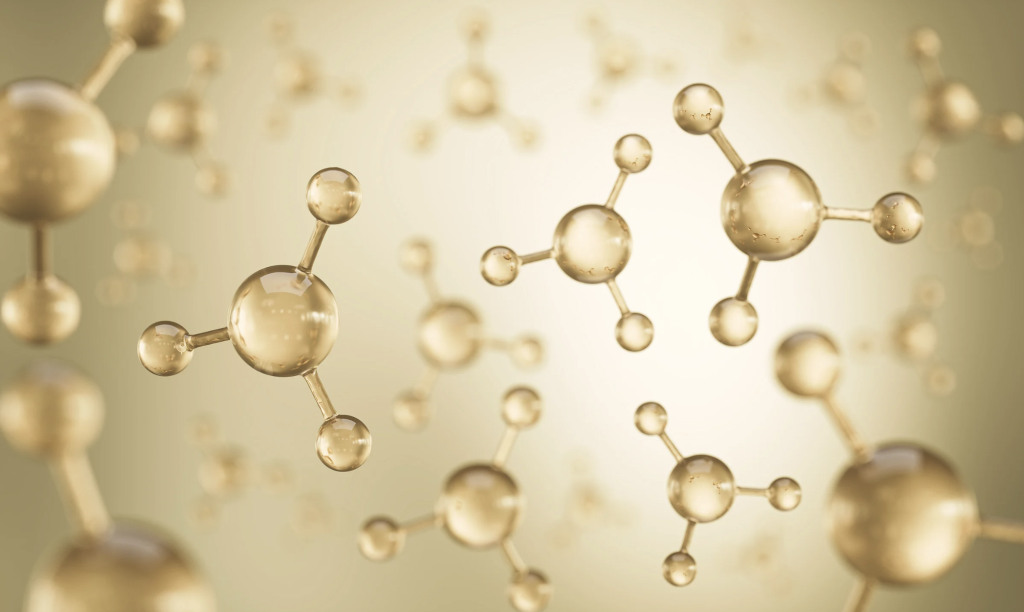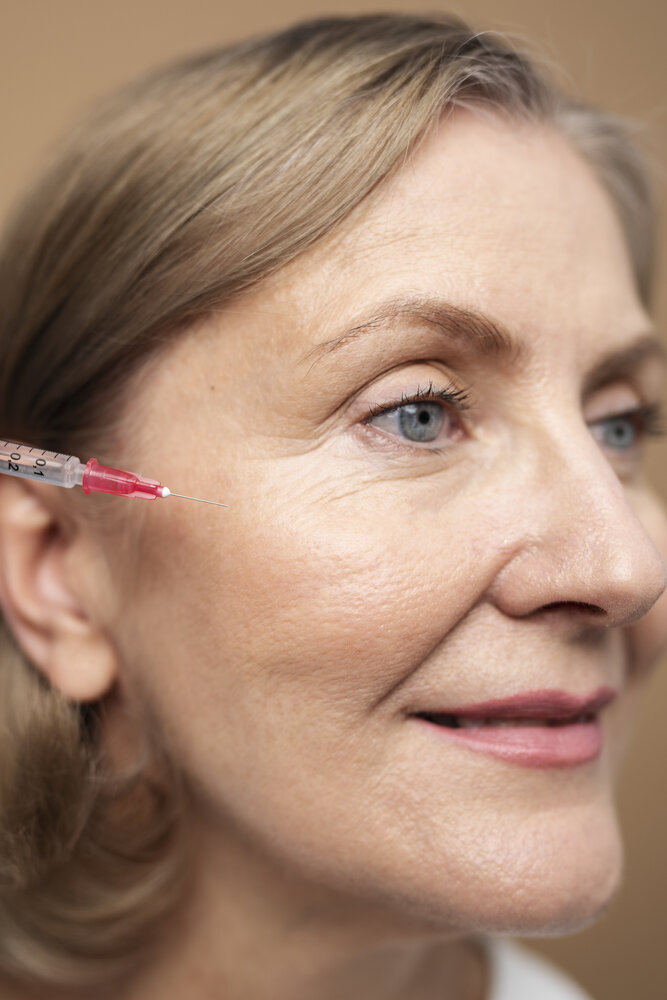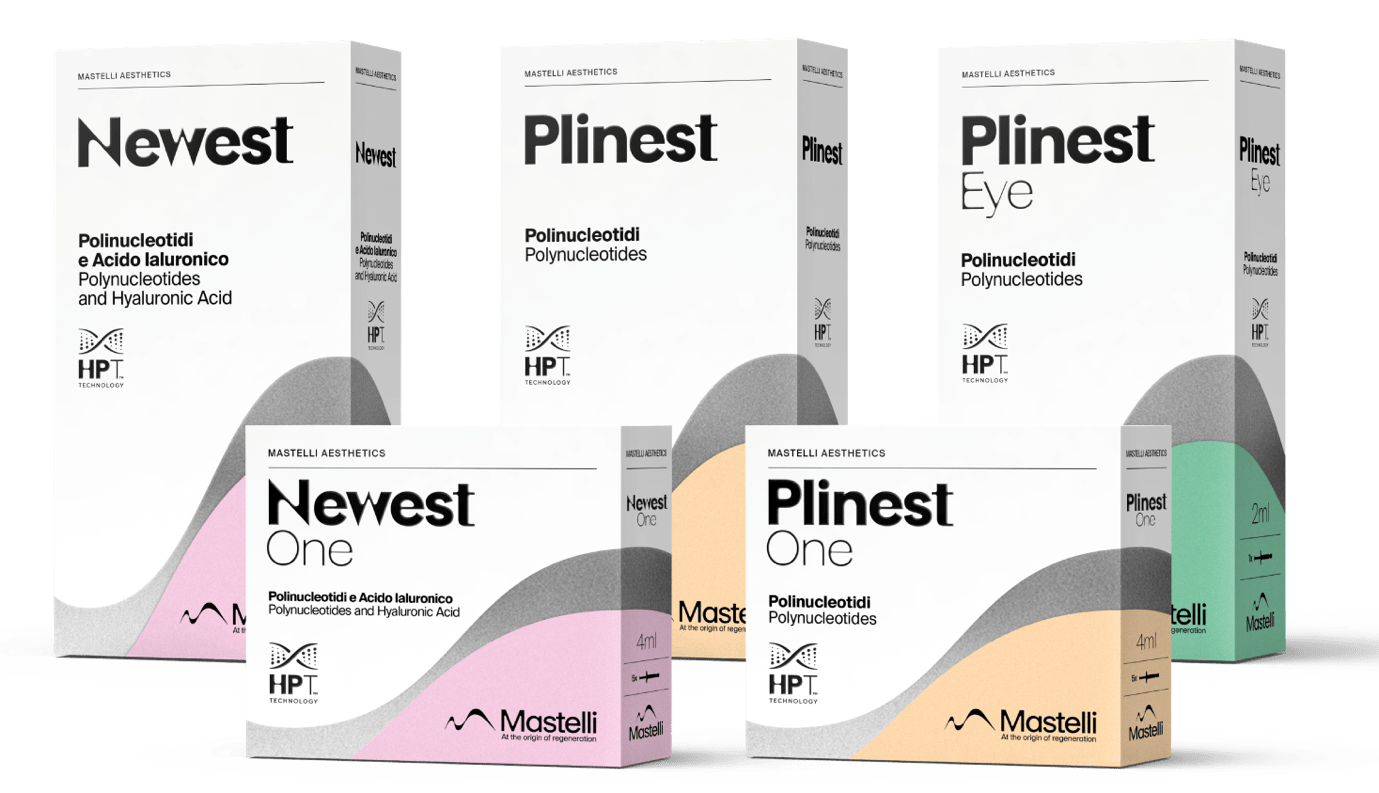Polynucleotide
Treatment in Witney

Polynucleotides in Aesthetic Injectables: A Comprehensive Guide
Polynucleotides (PN) have emerged as a revolutionary ingredient in the field of aesthetic medicine, offering regenerative and rejuvenating benefits for skin health. Derived from natural sources like salmon DNA, these injectable treatments stimulate cellular repair, boost collagen production, and improve skin texture without the need for invasive procedures. This page explores the science, applications, benefits, and considerations of polynucleotide injectables, helping you understand why they’re gaining popularity in anti-aging and skin revitalisation treatments.
What Are Polynucleotides?
Polynucleotides are chains of nucleotides – the building blocks of DNA and RNA – that mimic the body’s natural repair mechanisms. In aesthetic injectables, they are typically extracted from purified salmon or trout sperm DNA due to its high biocompatibility with human tissue (over 99% similarity in structure). Unlike traditional fillers like hyaluronic acid, which primarily add volume, polynucleotides work biologically to promote tissue regeneration.
- Composition: Long-chain polymers of deoxyribonucleotides, free from proteins or impurities to minimise allergic reactions.
- Mechanism of Action: Once injected, PN fragments are broken down by enzymes into smaller oligonucleotides. These act as signalling molecules, activating fibroblasts (cells responsible for collagen and elastin production), reducing inflammation, and enhancing extracellular matrix remodelling.
- Biocompatibility: PN are fully biodegradable and naturally metabolised by the body, making them suitable for sensitive skin types.
Clinical studies, such as those published in the Journal of Cosmetic Dermatology, demonstrate PN’s ability to increase skin hydration by up to 20-30% and collagen density by 15-25% after a series of treatments.

How Polynucleotide Treatments Work
Polynucleotide injectables are administered via micro-injections into the dermis or subcutaneous layers using fine needles or cannulas. The procedure is minimally invasive, often performed under topical anaesthesia for comfort.
Treatment Protocol
- Consultation: A practitioner assesses skin condition, goals, and medical history to customise the dosage and injection sites.
- Preparation: The skin is cleansed and numbed. PN solutions are prepared at concentrations of 20-40 mg/mL.
- Injection Technique:
- Micro-droplet Method: Shallow injections for superficial rejuvenation.
- Nappage Technique: Multiple superficial punctures for even distribution.
- Deep Layer Injections: For volume restoration in areas like under-eyes or nasolabial folds using either a needle or a cannula techniqu
Typical session: 2-4 mL per treatment area, lasting 30-60 minutes.
- Post-Treatment: Mild redness or swelling subsides within 24-48 hours. Patients are advised to avoid sun exposure and strenuous activity.
- Course of Treatment: 3-4 sessions spaced 2-4 weeks apart, followed by maintenance every 6-12 months.
Results become visible after 2-4 weeks as regenerative processes kick in, with peak effects at 3 months.
Applications in Aesthetic Medicine
Polynucleotides excel in treating ageing skin by addressing multiple concerns simultaneously:
- Facial Rejuvenation: Improves fine lines, wrinkles, and sagging around the eyes, mouth, and cheeks.
- Under-Eye Circles and Tear Troughs: Reduces hollowing and dark circles by hydrating and thickening delicate skin.
- Acne Scars and Stretch Marks: Promotes scar remodelling and tissue repair.
- Hair Restoration: Injected into the scalp to stimulate follicles and combat alopecia.
- Hand Rejuvenation: Restores volume and elasticity to aging hands.
- Body Treatments: Effective for cellulite reduction and skin laxity on neck, décolletage, or abdomen.
They are often combined with other injectables like hyaluronic acid for synergistic effects— PN for regeneration, HA for immediate hydration.
Benefits of Polynucleotide Injectables
- Natural Regeneration: Stimulates endogenous collagen (types I and III) and hyaluronic acid production, leading to long-lasting improvements (6-12 months).
- Minimal Downtime: Unlike lasers or surgery, recovery is quick with low risk of complications.
- Versatility: Suitable for all skin types, including thin or mature skin; safe for ethnic skin tones with reduced hyperpigmentation risk.
- Anti-Inflammatory Effects: PN modulate cytokines, aiding in wound healing and reducing oxidative stress.
- Evidence-Based: Backed by studies showing up to 40% improvement in skin elasticity (e.g., Italian multi-centre trials on PN-DNA injectables).
Patient satisfaction rates exceed 85% in clinical reviews, with visible enhancements in skin glow, firmness, and hydration.
Safety and Side Effects
Polynucleotides are highly safe due to their natural origin and hypoallergenic profile. The European Medicines Agency and FDA-equivalent bodies classify them as medical devices rather than drugs.
Common Side Effects
- Temporary redness, bruising, or swelling at injection sites (resolves in 1-3 days).
- Rare: Itching or nodules, which can be mitigated with proper technique.
Contraindications
- Active infections, autoimmune diseases, or pregnancy.
- Allergy to fish-derived products (though purification minimises this risk).
- Avoid in areas with active herpes simplex.

The Plinest Range
The term “plinest” refers to a product line of injectable polynucleotides, primarily used for skin and hair rejuvenation.
The range is manufactured by the Italian company Mastelli and is designed to improve skin elasticity, hydration, and overall texture by stimulating the production of collagen and elastin.
Plinest product line
The Plinest range from Mastelli includes a variety of polynucleotide gels, each targeting specific aesthetic concerns.
- Plinest Fast: A treatment formulated specifically to improve skin quality and address concerns like stretch marks and scars.
- Plinest Eye: A specialised formula for the delicate and sensitive skin around the eyes and eyebrows. It is intended to reduce fine lines, dark circles, and puffiness.
- Plinest Hair: A product used to improve scalp condition and support hair health. It stimulates fibroblasts in the hair follicles to help with hair growth and quality.
- Plinest One: A single-dose injectable treatment for addressing various signs of ageing by improving skin elasticity, hydration, and firmness.
- Newest: Part of the extended Mastelli line, Newest combines polynucleotides with hyaluronic acid for deep hydration and enhanced skin firmness.
Price List
Anti-Wrinkle Treatments
For upper facial regions:
Dermal Fillers
Skin Boosters
Profhilo:
PRP (Platelet Rich Plasma)
For hair restoration and skin rejuvination
Your own blood is taken, then spun to separate the platelets and plasma and your plasma is then micro-injected back into the treatable areas.
Recommended min 3 x treatments 1 month apart
Vitamin Therapy
Vitamin B12
Recommended 4 x weekly injections, then every 12 weeks maintenance
Vitamin C
Recommended 4 x weekly injections, then every 12 weeks maintenance
Vitamin D
Biotin
Recommended once a week for 8 sessions
Glutathione
Recommended 6 x weekly injections, then every 12 weeks maintenance
Testimonials
What They Say
See more Testimonials on our Facebook Page
Polynucleotide Treatment FAQs
What are the main benefits of polynucleotide treatments for the skin?
PNs offer a multifaceted approach to skin health:
- Improved texture and elasticity: Visible smoothing of fine lines and wrinkles within 4-6 weeks.
- Enhanced hydration and glow: Deeply moisturises from the inside out, ideal for dry or dull skin.
- Tissue repair: Excellent for acne scars, sun damage, or post-procedure recovery.
- Natural results: No risk of overfilling - your skin looks refreshed, not “done.” Studies show up to 20-30% improvement in skin firmness after a series of sessions, with effects lasting 6-12 months.
Are polynucleotide treatments suitable for all skin types?
What does a typical polynucleotide treatment session involve?
Sessions are quick and comfortable, lasting 20-45 minutes:
- Prep: A numbing cream is applied for ease.
- Application: Fine injections and/or a cannula are administered to target areas including the face, neck, décolletage, or under-eyes.
- Post-care: Mild redness may occur (fades in 24 hours); avoid sun/heat for 48 hours. Most clients need 2-4 sessions spaced 4 weeks apart, followed by maintenance every 3-6 months.
